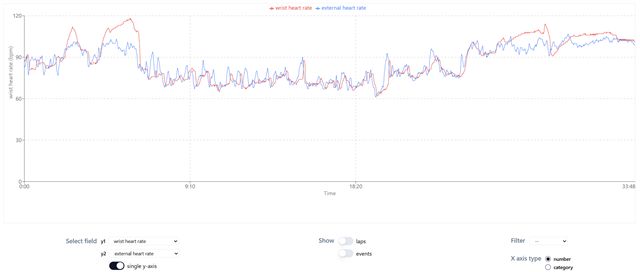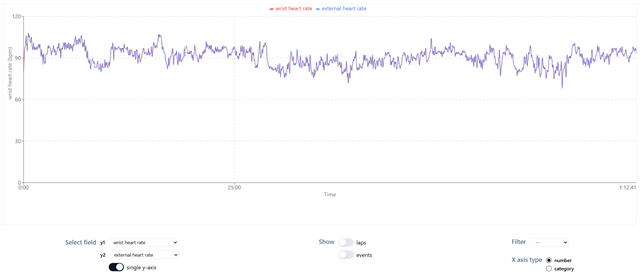Fighting with a too low heart rate during exercises over the last few months. Yesterday a quite fast run with a average heart rate of ~125 ppm referring the watch which would bei around 155 in reality.
There's no jump and the values vary during exercise.




